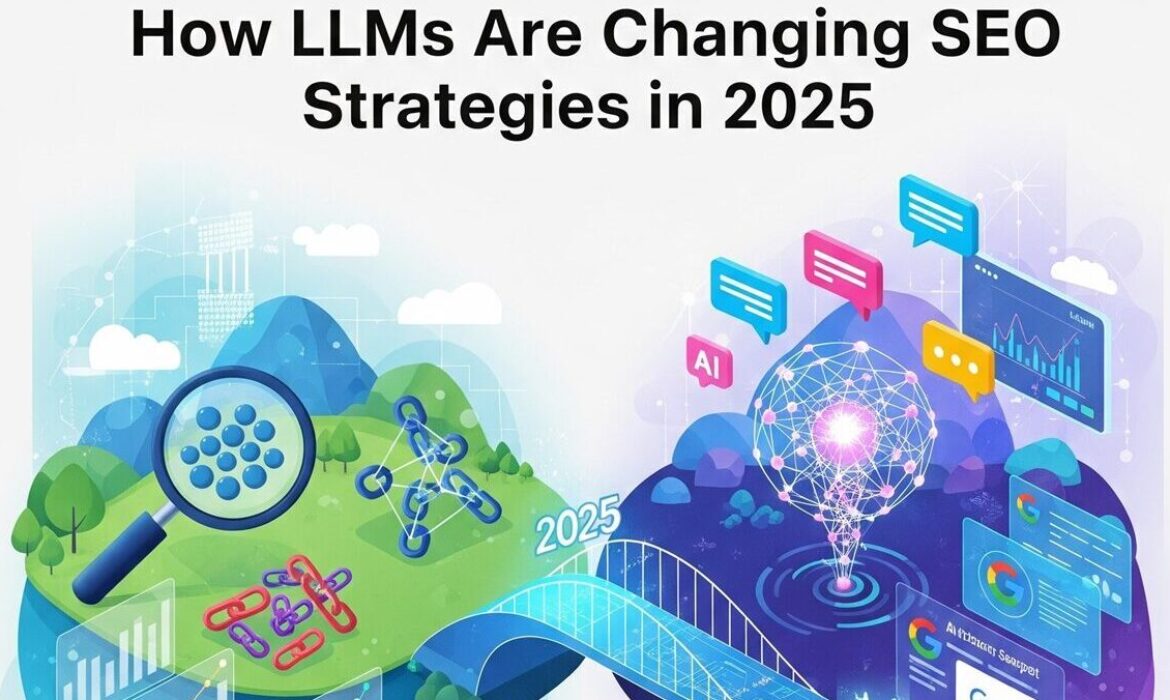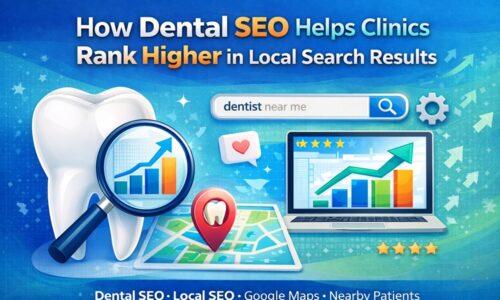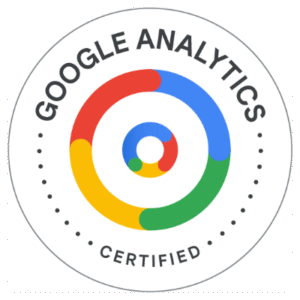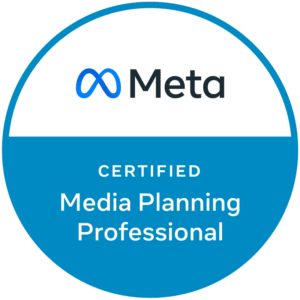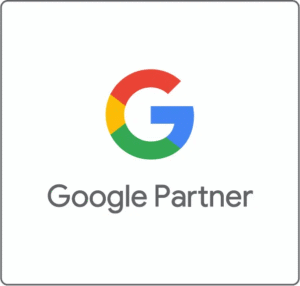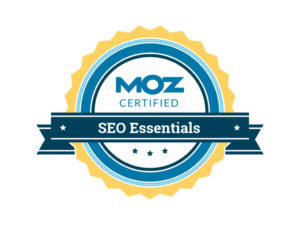Search engine optimization has never been static. From the early days of keyword stuffing to today’s complex ranking algorithms, SEO has always evolved with technology. But now, the industry faces its most disruptive force yet: Large Language Models (LLMs).
LLMs—like OpenAI’s GPT-4, Google’s Gemini, and Anthropic’s Claude—are advanced AI systems trained on billions of data points, capable of understanding natural language, generating human-like text, and even reasoning about user intent. These models don’t just index the web; they interpret it, summarize it, and present it back to users in conversational form.
This evolution is already visible in Google’s Search Generative Experience (SGE), Bing AI chat, and AI-powered assistants embedded in browsers and devices. Instead of clicking through multiple blue links, users increasingly receive direct, synthesized answers.
This shift raises an urgent question for SEO professionals, marketers, and businesses alike:
👉 How should SEO strategies evolve in an AI-first search landscape?
2. How LLMs Impact Traditional SEO
a) Keyword Research: From Exact Matches to Intent Mapping
Classic SEO depended heavily on exact-match keywords and search volume analysis. Tools like Ahrefs, SEMrush, and Moz identified which keywords users typed, and SEOs optimized content accordingly.
But LLMs have fundamentally changed this:
- Users no longer think in fragments (“best CRM small business”) but in natural language queries (“What’s the best CRM for a small business with under 20 employees?”).
- AI-powered autocomplete and query prediction suggest semantic variations users may never have typed before.
- Instead of focusing on one keyword, successful strategies now cluster related terms into topic maps that cover intent from all angles.
Example: A travel website optimizing for “Paris itinerary” should also answer:
- “How many days do you need in Paris?”
- “Best Paris itinerary for 5 days”
- “Paris itinerary for couples vs families”
This isn’t just long-tail optimization—it’s intent-based coverage. LLMs reward sites that anticipate and fulfill nuanced user questions.
b) Content Creation: Balancing AI Scale with Human Authority
LLMs have made content production faster and cheaper than ever. A marketer can generate blog drafts, product descriptions, or FAQs in seconds. But there’s a catch:
- Google’s Helpful Content Update prioritizes EEAT (Experience, Expertise, Authority, Trustworthiness).
- AI can scale words, but it struggles with first-hand insights, unique perspectives, and original data.
- Content that ranks well in the age of LLMs must balance automation with human credibility.
Emerging trend: Answer-first content. Instead of burying the response in a 3,000-word essay, SEOs now lead with the answer (ideal for AI snippets), then expand with depth, context, and multimedia to capture clicks.
c) Ranking Factors: Beyond Backlinks
Backlinks have long been the backbone of SEO. But with AI search, will they matter as much?
- AI Overviews often cite content without a click. Even if your site is the source, the user may never visit.
- This makes user engagement signals (CTR, dwell time, pogo-sticking rates) far more valuable.
- Interactive content (calculators, videos, visuals) may win in an era where pure text answers are commoditized by AI.
In other words, links won’t disappear—but trust, authority, and engagement will take center stage.
3. Opportunities for SEOs Using LLMs
a) Faster Content Production (With Guardrails)
LLMs can help SEOs:
- Generate first drafts of blogs, guides, or landing pages.
- Suggest FAQs and semantic variations for content expansion.
- Write optimized meta titles, descriptions, and alt text.
- Produce structured data and schema markup at scale.
👉 Example: A SaaS company used ChatGPT to generate meta descriptions for 2,000 pages, saving 80% of editorial time while improving CTR by 15%.
b) Dynamic Personalization
LLMs excel at contextualizing information for specific audiences. Imagine:
- A fitness site that dynamically generates workout plans based on age, goals, and equipment.
- A travel brand that tailors itineraries depending on whether the user is solo, with family, or on a budget.
By embedding AI into content workflows, brands can deliver hyper-personalized experiences—increasing engagement and loyalty.
c) Voice & Conversational Search Optimization
As assistants like Alexa, Siri, and Google Voice integrate LLMs, voice queries are becoming longer, more conversational, and intent-rich.
Optimizing for:
- Question-based content (“What’s the safest SUV for families in 2025?”)
- Featured snippet formats (concise, direct answers)
- Local queries (“Best Italian restaurant near me open now”)
The future of SEO is conversational optimization—designing content that feels like a human response.
4. Challenges & Risks
a) Content Originality & Duplication
AI-generated text risks sameness. If ten competitors use ChatGPT to write about “best running shoes,” the results blur together. To stand out, brands must:
- Publish original research and data.
- Feature expert commentary and case studies.
- Invest in multimedia assets (videos, podcasts, infographics).
b) Google’s Stance on AI Content
Google has clarified:
- AI content is not penalized if it’s helpful and people-first.
- Spammy, low-quality AI content will be downgraded by algorithms.
- Human oversight remains essential for compliance with EEAT.
c) Over-Reliance on AI
LLMs are powerful, but not infallible. Risks include:
- Hallucinations (AI inventing facts).
- Biases in training data.
- Lack of brand-specific tone and creativity.
SEO leaders must use AI as an assistant, not a replacement.
5. Future Predictions & Adaptations
- Zero-Click Searches Will Dominate: More answers will be consumed directly in AI overviews. Brands must optimize for visibility even without clicks (citations, mentions, structured data).
Tools like Wellows are emerging to help brands measure and improve their AI search visibility in this new ecosystem. As an autonomous marketing platform, Wellows tracks implicit and explicit citations across generative engines, assigns a unified Citation Score, and gives businesses a clear picture of how often they appear inside AI-generated answers. As zero-click AI responses grow, having insight into your AI visibility becomes just as important as traditional rankings. - Brand Authority Will Be Everything: As AI condenses answers, it will prioritize trusted voices. Building brand equity (via PR, thought leadership, and reviews) is now an SEO tactic.
- SEO + AI Hybrid Tools Will Lead: Tools like SurferSEO, MarketMuse, and AlliAI already integrate LLMs to provide semantic insights, competitive analysis, and content scoring. Expect rapid growth in this category.
Example: A B2B SaaS company using MarketMuse increased rankings by 45% in six months by combining AI-assisted outlines with human-written, expert-led content.
6. Conclusion & Actionable Takeaways
The SEO industry is at a turning point. LLMs and AI-first search are not just tools—they’re rewriting the rules of visibility online.
Key Takeaways:
✅ Shift from keyword obsession to intent-based clusters.
✅ Use AI for scale, but layer in human expertise and originality.
✅ Optimize for conversational queries and voice search.
✅ Invest in brand authority—your name may matter more than your backlinks.
✅ Test AI-powered SEO tools, but don’t outsource strategy to algorithms.
The winners in this new era will be the brands that blend AI efficiency with human creativity and trust.
👉 How are you adapting your SEO strategy for the AI era?
📌 Call to Action
Want to future-proof your SEO? [Download our free checklist on AI-powered SEO best practices!]
💬 How do you use LLMs in your SEO workflow? Share your strategies and challenges in the comments below!

